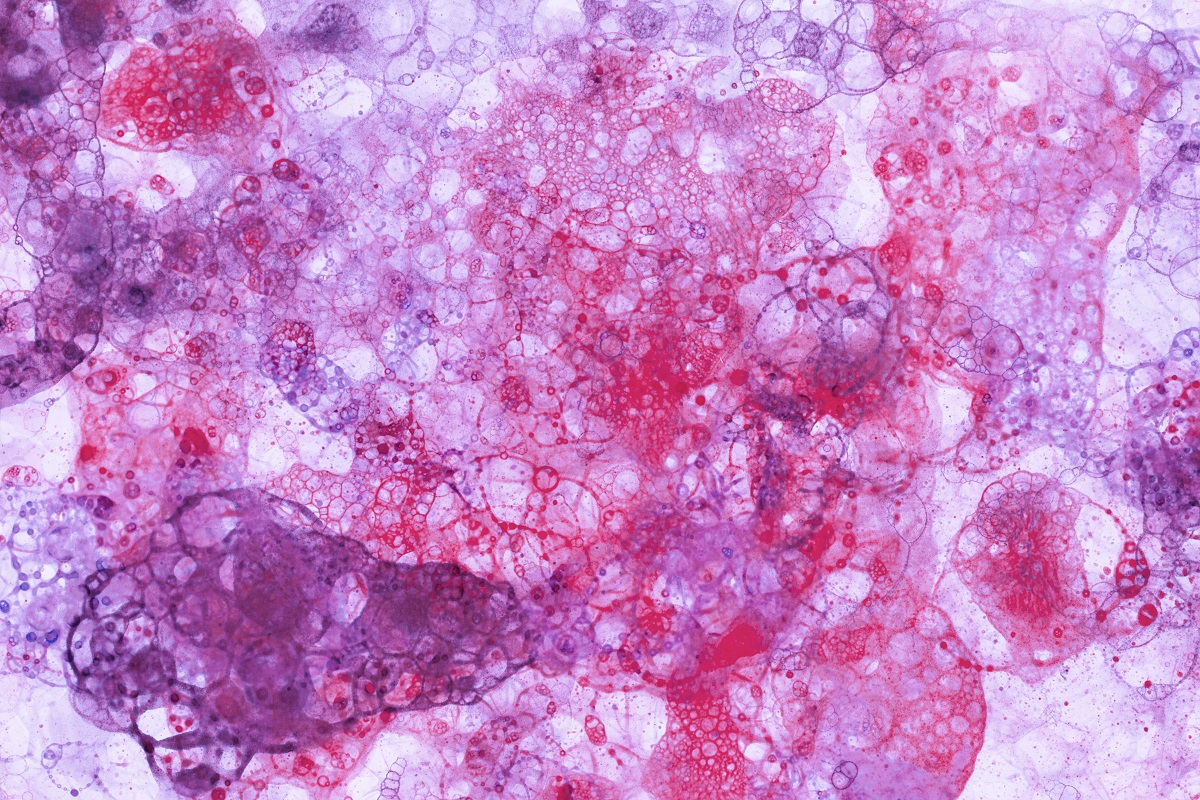KEY TAKEAWAYS
- The phase II trial assessed the safety and efficacy of combining SBRT with GM-CSF and Peg-IFNα in pre-treated stage IV thymic tumor patients.
- The primary endpoints were the proportion of patients with abscopal effects and ORR. The secondary endpoints included OS, PFS, and therapeutic safety.
- The result demonstrated promise as a well-tolerated salvage therapy for advanced thymic cancer, potentially boosting outcomes via abscopal effects.
Following the ineffectiveness of multi-line treatments, individuals diagnosed with stage IV thymic tumors face a grim prognosis with limited therapeutic alternatives. This study aimed to explore the combination of stereotactic body radiotherapy (SBRT) with granulocyte-macrophage colony-stimulating factor (GM-CSF) and Pegylated interferon-α (Peg-IFNα), aiming to induce abscopal effects and improve overall prognosis.
The treatment protocol involved a 21-day cycle comprising SBRT delivering 30 Gy in 5 fractions to one metastatic lesion from day 1. Simultaneously, GM-CSF was subcutaneously injected once daily for 14 days, and Peg-IFNα was administered subcutaneously at 90 μg on day 8. Additional treatment cycles were repeated if patients had more than two metastatic lesions. Following 1 or 2 cycles, Peg-IFNα therapy was maintained with a monthly subcutaneous injection of 90 μg for at least six months.
Primary endpoints were the proportion of patients with abscopal effects and the objective response rate (ORR). Secondary endpoints included overall survival (OS), progression-free survival (PFS), and therapeutic safety.
About 20 patients were enrolled in the trial, comprising 1 (5.0%) type A thymoma, 2 (10.0%) type B1 thymoma, 2 (10.0%) type B2 thymoma, 1 (5.0%) type B3 thymoma, 12 (60.0%) thymic squamous cell carcinoma, and 2 (10.0%) thymic neuroendocrine tumors. With a median follow-up of 18.6 months, 8 (40.0%) patients exhibited abscopal effects, yielding an ORR of 45.0%. The median OS had not been reached, and the median PFS was 9.0 months.
Patients with abscopal effects tended to have prolonged OS and PFS compared to those without abscopal effects. About 3 patients (15.0%) encountered Grade 3 treatment-related adverse events(TRAEs) (CTCAE version 5.0), with cardiac insufficiency leading to treatment discontinuation in 1 patient (5.0%).
The result demonstrated promise as a well-tolerated salvage therapy for advanced thymic cancer, potentially boosting outcomes via abscopal effects.
Source: https://cattendee.abstractsonline.com/meeting/10925/presentation/1038
Clinical Trial: https://clinicaltrials.gov/study/NCT04517539
Wang B, Wen J, Li H, Chen J, Fan M. Combining SBRT with GM-CSF and Peg-IFNα to Induce Abscopal Effects in Previously Treated Patients with Stage IV Thymic Tumors. In: IASLC 2023 World Conference on Lung Cancer, Singapore; Monday, September 11, 2023.



